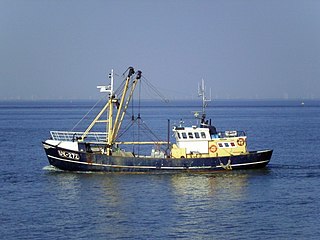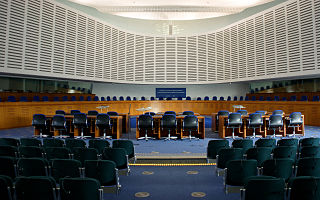Best interests or best interests of the child is a child rights principle, which derives from Article 3 of the UN Convention on the Rights of the Child, which says that “in all actions concerning children, whether undertaken by public or private social welfare institutions, courts of law, administrative authorities or legislative bodies, the best interests of the child shall be a primary consideration”. Assessing the best interests of a child means to evaluate and balance “all the elements necessary to make a decision in a specific situation for a specific individual child or group of children”.

R v Secretary of State for Transport was a judicial review case taken against the United Kingdom government by a company of Spanish fishermen who claimed that the United Kingdom had breached European Union law by requiring ships to have a majority of British owners if they were to be registered in the UK. The case produced a number of significant judgements on British constitutional law, and was the first time that courts held that they had power to restrain the application of an Act of Parliament pending trial and ultimately to disapply that Act when it was found to be contrary to EU law.
Sullivan v. Zebley, 493 U.S. 521 (1990), was a landmark decision by the United States Supreme Court involving the determination of childhood Social Security Disability benefits. In the decision, the Supreme Court ruled that substantial parts of the Supplemental Security Income program's regulation on determining disability for children were inconsistent with the Social Security Act, particularly the statutory standard of "comparable severity". The suit highlighted what some felt was the need for a step in the evaluation of childhood disability claims that would be akin to the functional evaluation considered in many adult claims. It resulted in the addition of a consideration of functioning, and not merely medical severity, in children's SSI claims. The decision was rendered on February 20, 1990.

Robert John Reed, Baron Reed of Allermuir, is a British judge who has been President of the Supreme Court of the United Kingdom since January 2020. He was the principal judge in the Commercial Court in Scotland before being promoted to the Inner House of the Court of Session in 2008. He is an authority on human rights law in Scotland and elsewhere; he served as one of the UK's ad hoc judges at the European Court of Human Rights. He was also a Non-Permanent Judge of the Court of Final Appeal of Hong Kong.

R (Carson) v Secretary of State for Work and Pensions and R v Secretary of State for Work and Pensions were a series of civil action court cases seeking judicial review of the British government's policies under the Human Rights Act 1998. They related to the right to property under Article 1 of the First Protocol and prohibition of discrimination under Article 14 of the convention. In Reynolds's case, there was also Article 8 of the European Convention on Human Rights (ECHR), the right to respect for "private and family life" to be considered, as well as Article 3 of the ECHR, the prohibition of torture, and "inhuman or degrading treatment or punishment".
S and Marper v United Kingdom [2008] ECHR 1581 is a case decided by the European Court of Human Rights which held that holding DNA samples of individuals arrested but who are later acquitted or have the charges against them dropped is a violation of the right to privacy under the European Convention on Human Rights.
European labour law regulates basic transnational standards of employment and partnership at work in the European Union and countries adhering to the European Convention on Human Rights. In setting regulatory floors to competition for job-creating investment within the Union, and in promoting a degree of employee consultation in the workplace, European labour law is viewed as a pillar of the "European social model". Despite wide variation in employment protection and related welfare provision between member states, a contrast is typically drawn with conditions in the United States.
Santa Clara Pueblo v. Martinez, 436 U.S. 49 (1978), was a landmark case in the area of federal Indian law involving issues of great importance to the meaning of tribal sovereignty in the contemporary United States. The Supreme Court sustained a law passed by the governing body of the Santa Clara Pueblo that explicitly discriminated on the basis of sex. In so doing, the Court advanced a theory of tribal sovereignty that weighed the interests of tribes sufficient to justify a law that, had it been passed by a state legislature or Congress, would have almost certainly been struck down as a violation of equal protection.

R v Secretary of State for Work and Pensions [2013] UKSC 68 is a United Kingdom constitutional law and labour law case that found the conduct of the Department for Work and Pensions "workfare" policy was unlawful. Caitlin Reilly, an unemployed geology graduate, and Jamieson Wilson, an unemployed driver, challenged the Jobcentre policy of making the unemployed work for private companies to get unemployment income. The outcome of the case affects over 3,000 claimants and entails around £130m unpaid benefits.

The Welfare Reform Act 2012 is an Act of Parliament in the United Kingdom which makes changes to the rules concerning a number of benefits offered within the British social security system. It was enacted by the Parliament of the United Kingdom on 8 March 2012.
The under-occupancy penalty results from a provision of the British Welfare Reform Act 2012 whereby tenants living in public housing with rooms deemed "spare" face a reduction in Housing Benefit, resulting in them being obliged to fund this reduction from their incomes or to face rent arrears and potential eviction by their landlord.

R (Tigere) v Secretary of State for Business, Innovation and Skills was a 2015 judgment of the Supreme Court of the United Kingdom concerning student loans in the United Kingdom.
The benefit cap is a British Coalition government policy that limits the amount in state benefits that an individual household can claim per year. The benefit cap was introduced in 2013 at £26,000 per year which was the average family income in the UK. For single people with no children it was set at £18,200 per year. The level of the benefit cap was subsequently lowered following an announcement in the July 2015 United Kingdom budget. From Autumn 2016 it was reduced to £20,000, except in London where it was reduced to £23,000.
The welfare cap is a self-imposed limit on the amount that the government of the United Kingdom can spend on certain social security benefits and tax credits. The welfare cap was first introduced in the 2014 United Kingdom budget. The policy took effect in 2015, and the limit for the financial year 2015–16 was set at £119.5 billion, amounting to 56% of total welfare spending. The operation of welfare cap is set out in The Charter for Budget Responsibility. The Office for Budget Responsibility (OBR) is required to report periodically on whether the cap has been met or exceeded. The OBR initially made its assessments annually in the Autumn, but since 2017 the cap is only assessed at the first Budget of a new Parliament. Welfare spending was initially required to be less than the cap every year, but since 2017 this has been replaced by a medium-term welfare cap and welfare spending is assessed for a single year chosen by HM Treasury. Following the 2017 general election the OBR made its Autumn 2017 assessment for the financial year 2021–22. The 2019 general election led to a subsequent assessment at the March 2020 budget for the financial year 2024–25.
Hong Kong does not recognise same-sex marriages or civil unions. However, same-sex couples are afforded limited legal rights as a result of several court decisions, including the right to apply for a spousal visa, guardianship rights and joint custody of children, and spousal benefits for the partners of government employees.

R (Carson) v Secretary of State for Work and Pensions [2005] UKHL 37 was heard by the Lords of Appeal in the House of Lords on 26 May 2005 before Lord Nicholls, Lord Hoffmann, Lord Rodger, Lord Walker, and Lord Carswell.

Carson and Others v. The United Kingdom [2008] ECHR 1194 was heard by the European Court of Human Rights (ECHR), Fourth Section in Strasbourg on 4 November 2008 appeal from the Appellate Committee of the House of Lords before Lech Garlicki (President); Nicolas Bratza; Giovanni Bonello; Ljiljana Mijović; David Thór Björgvinsson; Ledi Bianku; Mihai Poalelungi.

Carson and Others v. The United Kingdom [2010] ECHR 338 was heard by the European Court of Human Rights (ECHR), in Strasbourg on 16 March 2010 on appeal from the European Court of Rights (ECHR), Fourth Section before Jean-Paul Costa (President), Christos Rozakis, Nicolas Bratza, Peer Lorenzen, Françoise Tulkens, Josep Casadevall, Karel Jungwiert, Nina Vajić, Dean Spielmann, Renate Jaeger, Danutė Jočienė, Ineta Ziemele, Isabelle Berro-Lefèvre, Päivi Hirvelä, Luis López Guerra, Mirjana Lazarova Trajkovska, Zdravka Kalaydjieva.

Begum v Home Secretary [2021] UKSC 7 is the short name of three closely connected proceedings considered together in the Supreme Court of the United Kingdom, R v Special Immigration Appeals Commission; R v Secretary of State for the Home Department; and Begum v Secretary of State for the Home Department, concerning Shamima Begum, a woman born in the United Kingdom who at the age of 15 travelled to Syria to join the Islamic State of Iraq and the Levant (ISIS). Her intention to return to England in 2019 resulted in a public debate about the handling of returning jihadists.







